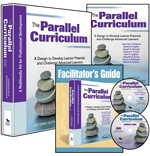
Hands-on, Practical Guidance for Educators
From math,
literacy, equity, multilingual learners, and SEL, to assessment, school counseling,
and education leadership, our books are research-based and authored by experts
on topics most relevant to what educators are facing today.
The Parallel Curriculum (Multimedia Kit)
By: Carol Ann Tomlinson, Sandra N. Kaplan, Joseph S. Renzulli, Jeanne H. Purcell, Jann H. Leppien, Deborah E. Burns, Cindy A. Strickland, Marcia B. Imbeau
Demonstrate how the Parallel Curriculum Model helps educators refine their understanding of a high-quality, comprehensive curriculum to dramatically improve learning and achievement for diverse groups of students.
Includes: DVD (69 min.), Facilitator’s Guide, CD-ROM, Companion Book
- Grade Level: PreK-12, Elementary, Secondary
- ISBN: 9781412976367
- Published By: Corwin
- Year: 2009
- Page Count: 96
- Publication date: July 21, 2011
Price: $396.95
For Instructors
Description
Use the PCM model to help educators refine their understanding of a high-quality, comprehensive curriculum!
Designed around the second edition of the best-selling book The Parallel Curriculum, this one-stop multimedia kit reflects the best practices in curriculum development and implementation and allows facilitators to demonstrate how the Parallel Curriculum Model (PCM) can dramatically enhance instruction and improve learning for diverse groups of students. Participants will engage in discussions about:
- The four parallels for curriculum and instruction: Core Curriculum, Curriculum of Connections, Curriculum of Practice, and Curriculum of Identity
- Units of study that include one or more parallels
- 11 key components for high-quality curriculum design and implementation
- The Ascending Intellectual Demand (AID) concept for supporting student development
- Assessment as a vital element of the Parallel Curriculum Model
The Parallel Curriculum, Second Edition: A Multimedia Kit for Professional Development provides:
- The second edition of the companion book The Parallel Curriculum, which offers a rich curriculum model to strengthen students' capacity as learners and thinkers
- A 69-minute, content-rich DVD—with an easy stop-and-search navigation menu—that features PCM authors Carol Ann Tomlinson and Jann H. Leppien discussing the principles behind the PCM model and shows teachers using PCM in real classrooms
- A step-by-step facilitator's guide that connects the book to the DVD and provides discussion questions, workshop activities, handouts, and agendas
- A companion CD-ROM that contains a digital copy of the entire facilitator guide
An ideal professional development resource to use with pairs, small workshops, or large seminars, this multimedia kit is essential for anyone leading workshops focused on creating an in-depth, research-based curriculum that serves every student.
Author(s)
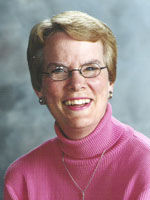
Carol Ann Tomlinson
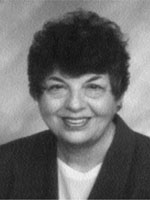
Sandra N. Kaplan
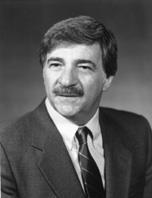
Joseph S. Renzulli
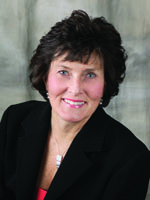
Jeanne H. Purcell
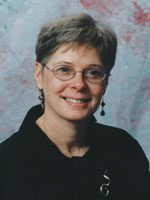
Jann H. Leppien
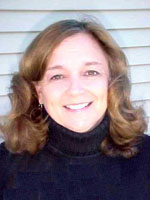
Deborah E. Burns

Cindy A. Strickland
Cindy’s publications include Staff Development Guide for the Parallel Curriculum; The Parallel Curriculum Model, 2nd edition; The Parallel Curriculum Model in the Classroom: Applications Across the Content Areas; and In Search of the Dream: Designing Schools and Classrooms That Work for High Potential Students from Diverse Cultural Backgrounds.
Publications in differentiation include Professional Development for Differentiated Instruction: An ASCD Toolkit, Exploring Differentiated Instruction, Tools for High-Quality Differentiated Instruction: An ASCD Toolkit, the ASCD online course Success with Differentiation, the book Differentiation in Practice: A Resource Guide for Differentiating Curriculum, Grades 9–12, and a unit in the book Differentiation in Practice: A Resource Guide for Differentiating Curriculum, Grades 5–9.
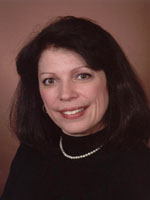
Marcia B. Imbeau
Marcia B. Imbeau is an associate professor at the University of Arkansas, Fayetteville, where she teaches graduate courses in gifted education and elementary education. She is actively involved with university/public school partnerships and teaches in a local elementary school as a university liaison. Her professional experience includes serving as a field researcher for the National Research Center on the Gifted and Talented, elementary teaching in the regular classroom, teaching in programs for the gifted, and coordinating university-based and Saturday programs for advanced learners.
Imbeau has been a board member for the National Association for Gifted Children and has served as a governor at-large for the Council for Exceptional Children – The Association for the Gifted Division. She is a past president of Arkansans for Gifted and Talented Education, a state organization that supports appropriate instructional services for all students.
Working with special education colleagues, she has coauthored How to Use Differentiated Instruction With Students with Disabilities in the General Education Classroom as a service publication for the Council for Exceptional Children. Her most recent publication may be found in Designing Services and Programs for High-Ability Learners.
Imbeau is a member of the ASCD’s Differentiated Instruction Cadre, which provides support and training to schools interested in improving their efforts to meet the academically diverse learning needs of their students.
Table of Contents
About the Author
Introduction
How to Use This Guide
How to Use the Video/DVD
Additional Resources for Facilitators
Chapter-by-Chapter Study Guide: Facilitators Guide to The Parallel Curriculum
Welcome and Workshop Starter
Optional Preassessment
Workshop 1: Rationale
Preview Activity
Video Segment 1
Discussion Questions
Workshop 2: Overview of the Model
Preview Activity
Video Segment 2
Discussion Questions
Workshop 3: Elements of Curriculum Design
Preview Activity
Variation on Preview Activity
Video Segment 3
Discussion Questions
Application Activity
Workshop 4: Core Parallel
Optional Review Activity
Preview Activity
Differentiation Based on Learner Need (Including AID)
Video Segment 4
Discussion Questions
Application Activity
Differentiation Based on Learner Need (Including AID)
Workshop 5: Connections Parallel
Preview Activity
Video Segment 5
Discussion Questions
Application Activity
Workshop 6: Practice Parallel
Preview Activity
Video Segment 6
Discussion Questions
Application Activity
Workshop 7: Identity Parallel
Preview Activity
Video Segment 7
Discussion Questions
Application Activity
Workshop 8: Ascending Intellectual Demand
Preview Activity
Video Segment 8
Discussion Questions
Optional Extension Activity
Application Activity
Workshop Closure Activity
Workshop 9: Combining the Parallels
Discussion
Workshop Closure Activity
Video Segment 9
Masters
Sample Workshop Agendas
Workshop Evaluation Form
Other Titles in: Multimedia Kits & Facilitator's Guides | Physical Impairments | Teaching Methods & Learning Styles

